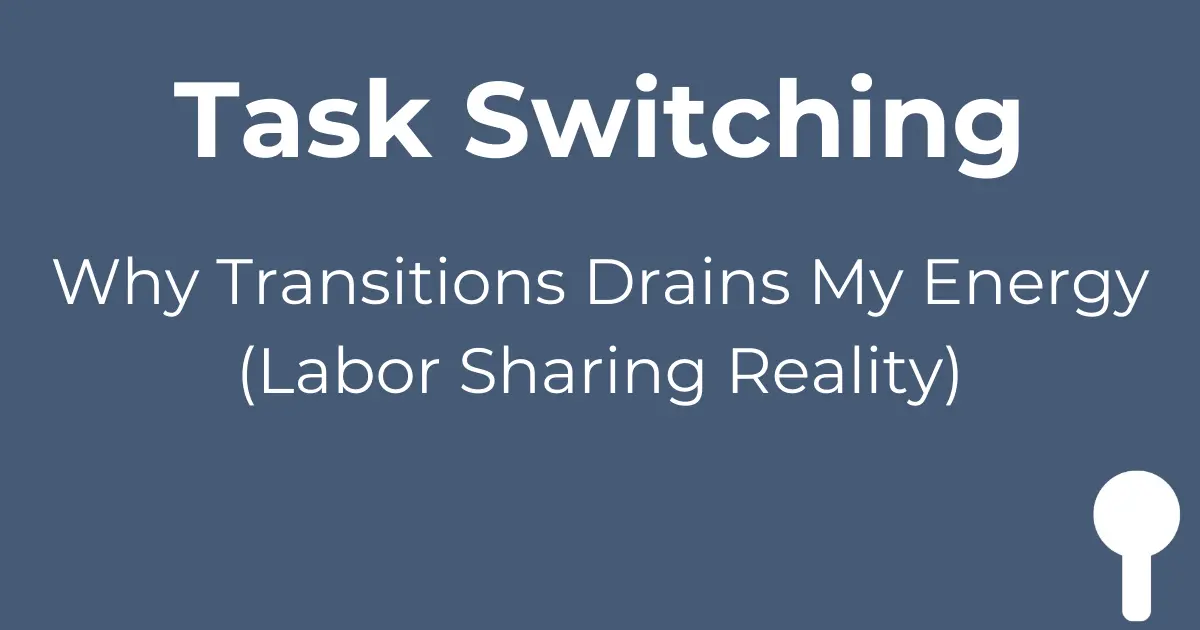
Task Switching Drains Me More Than the Tasks Themselves
What's a transition? Meditating for 30 minutes, then suddenly going downstairs to make breakfast.
Why does that cost energy? Task switching abruptly forces my brain to think about where everything is and what I want to eat. This constant context switching drains my cognitive resources.
Why Transitions Are Harder for Autistic People
Neurotypicals have this problem too. But for us, the effect is far greater.
Every transition demands executive function from me—I have to plan the new task, remember where I left off, organize my approach. My executive function is already limited as an autistic person. Transitions drain it even faster.
The Worst Kind of Transition
A completely different environment my brain has to adjust to—new sounds I have to filter, different lighting that hits my eyes, unfamiliar spatial layout I need to map out. The sensory adjustment I go through is more exhausting than the physical task itself.
The Compound Cost
What happens with multiple transitions in a row? My energy quickly deplete to 0. Stress levels go way up. Multiple meltdowns are frequent. I sob in frustration once my shift is over.
One transition during the day is exhausting, but I still have a bit energy left. Eight transitions push me into autistic burnout long before my work week even concludes. This is how task switching compounds into complete shutdown. Recovery time becomes longer and harder.
What Actually Helps
A strict grace period of 5 minutes before switching to a new task is crucial. It gives my mind time to both reset and rest before engaging in the new task. Reduces the cognitive load significantly.
How Tracking Helps
Tracking helps me notice on low-energy days that I'm transitioning from one task to the next way too much.
Adding a strict 5-minute grace period before completing the next task makes the drain far less profound. 2 energy instead of 5.
I'm Omari, a 23-year-old autistic adult who's been managing chronic burnout for 5+ years while working warehouse shifts.
This is why I'm building Spoons. To see the patterns. To know when I'm switching too much. To make adjustments before I hit burnout.
Launching April 2026. getspoons.app - One email when it's ready. No spam.
— Omari
Note: I'm sharing my personal experience as an autistic adult, not medical advice. If you're experiencing severe burnout or crisis, please consult a healthcare provider familiar with autism.
